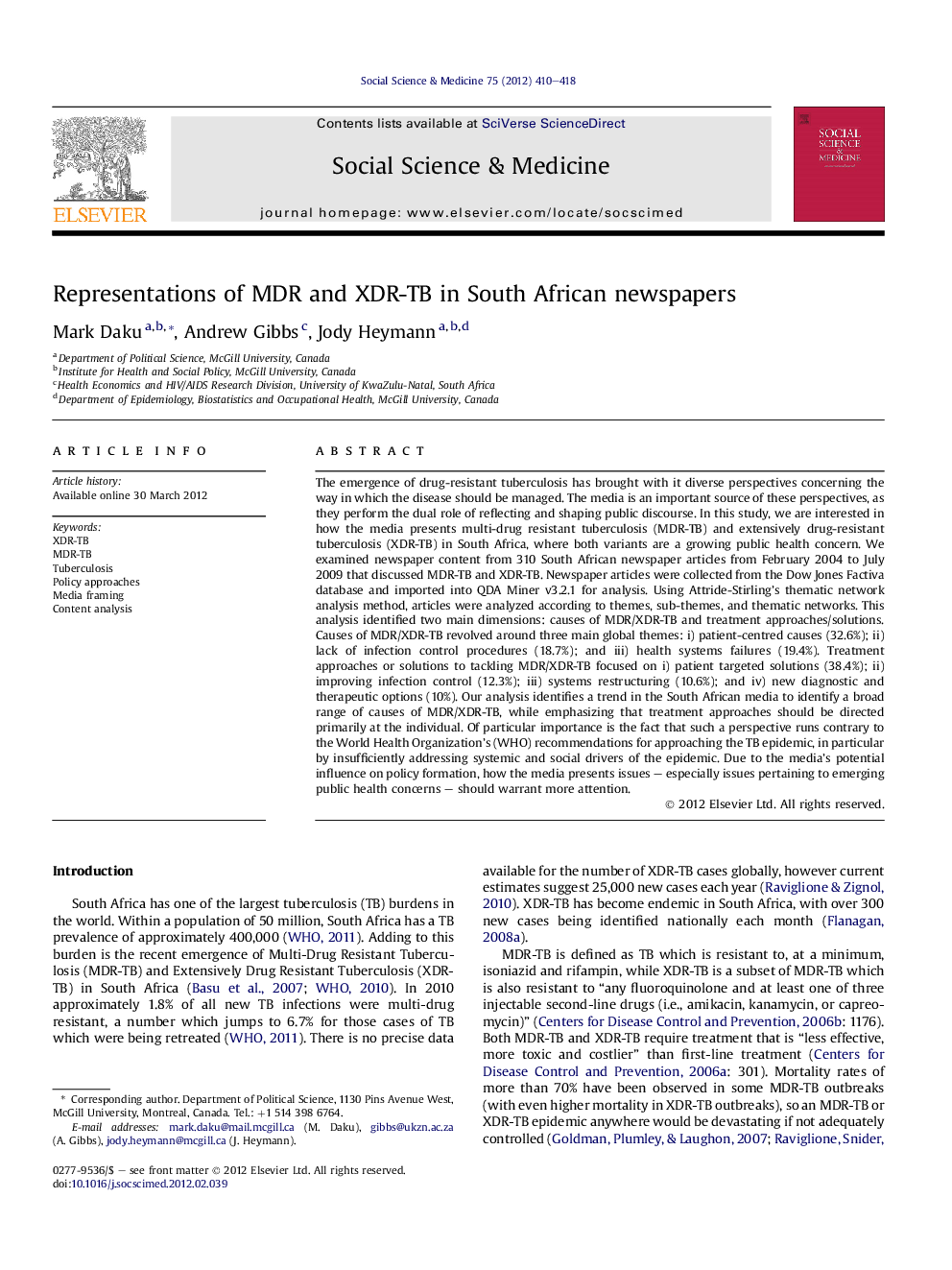| Article ID | Journal | Published Year | Pages | File Type |
|---|---|---|---|---|
| 952555 | Social Science & Medicine | 2012 | 9 Pages |
The emergence of drug-resistant tuberculosis has brought with it diverse perspectives concerning the way in which the disease should be managed. The media is an important source of these perspectives, as they perform the dual role of reflecting and shaping public discourse. In this study, we are interested in how the media presents multi-drug resistant tuberculosis (MDR-TB) and extensively drug-resistant tuberculosis (XDR-TB) in South Africa, where both variants are a growing public health concern. We examined newspaper content from 310 South African newspaper articles from February 2004 to July 2009 that discussed MDR-TB and XDR-TB. Newspaper articles were collected from the Dow Jones Factiva database and imported into QDA Miner v3.2.1 for analysis. Using Attride-Stirling’s thematic network analysis method, articles were analyzed according to themes, sub-themes, and thematic networks. This analysis identified two main dimensions: causes of MDR/XDR-TB and treatment approaches/solutions. Causes of MDR/XDR-TB revolved around three main global themes: i) patient-centred causes (32.6%); ii) lack of infection control procedures (18.7%); and iii) health systems failures (19.4%). Treatment approaches or solutions to tackling MDR/XDR-TB focused on i) patient targeted solutions (38.4%); ii) improving infection control (12.3%); iii) systems restructuring (10.6%); and iv) new diagnostic and therapeutic options (10%). Our analysis identifies a trend in the South African media to identify a broad range of causes of MDR/XDR-TB, while emphasizing that treatment approaches should be directed primarily at the individual. Of particular importance is the fact that such a perspective runs contrary to the World Health Organization's (WHO) recommendations for approaching the TB epidemic, in particular by insufficiently addressing systemic and social drivers of the epidemic. Due to the media's potential influence on policy formation, how the media presents issues – especially issues pertaining to emerging public health concerns – should warrant more attention.
► This study contributes to existing research on the media's role in shaping policy responses to the TB pandemic. ► This study provides a uniquely comprehensive analysis of all top print media in South Africa over five years. ► The media prioritized patient-centred causes and solutions to MDR/XDR-TB (32.6% and 38.4% of articles). ► A minority of articles mentioned social factors such as tensions around rights and social grants (3% and 2.9% of articles). ► The media's focus on patients at the expense of social and other factors differs greatly from the WHO's TB strategy.
